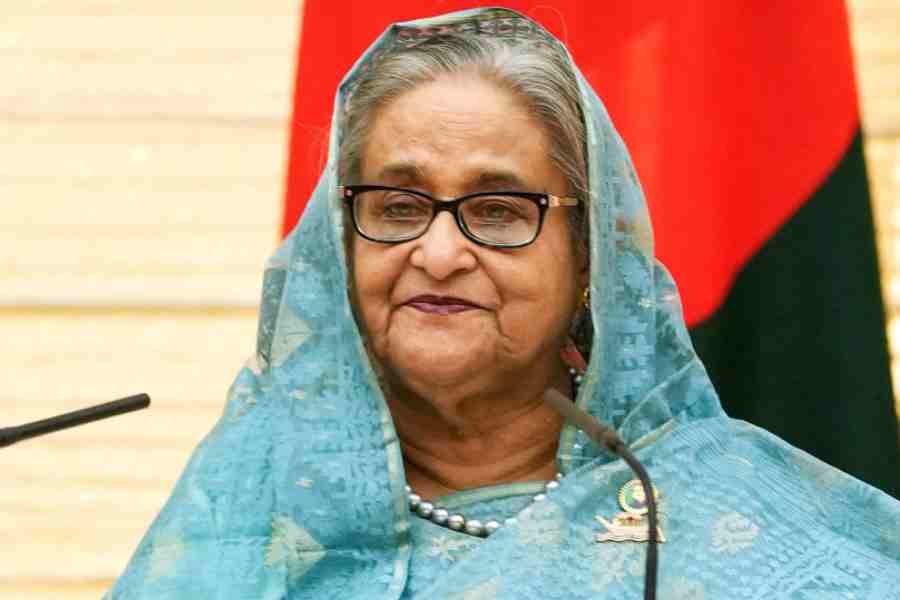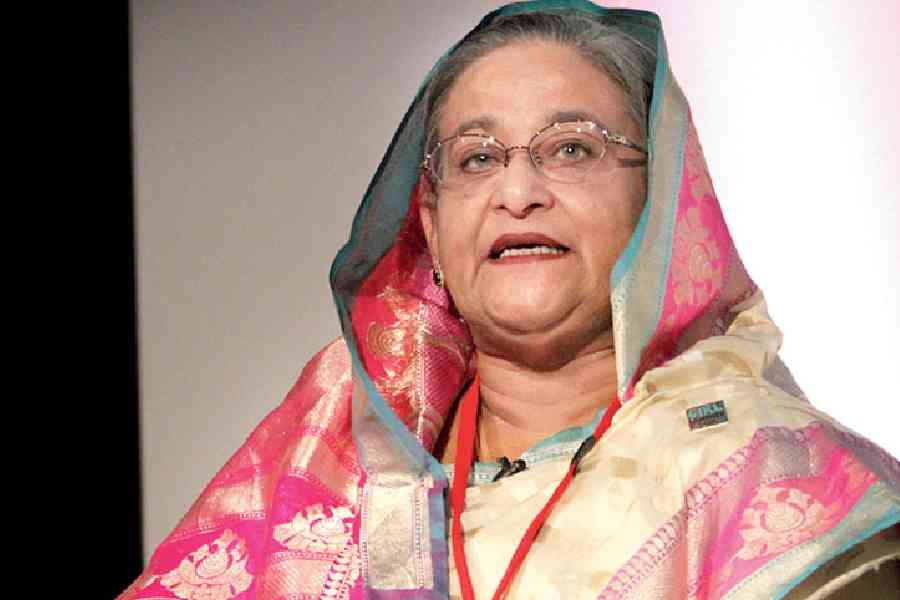The US on Wednesday evening announced that it would restrict visas for Bangladeshis found undermining the South Asian country’s democratic election process next January, causing a flutter in Dhaka.
US secretary of state Anthony Blinken’s announcement came amid speculation in Dhaka about Washington imposing “some sanctions” against the Sheikh Hasina government, with which it has not always been on the same page.
The US has explained that the new visa policy is not a sanction, which comes as a relief for the Hasina government. However, Dhaka has been rife with various interpretations of the new visa rule, which some experts said was the first of its kind relating to the region.
“It’s still too early to comment on the new visa policy and what impact it may have on the upcoming elections,” said a retired Bangladeshi diplomat who had worked in various Western countries. We must wait for some time before assessing what the US actually wants to achieve with it, because the statement is very nuanced.”
The statement begins by stating an objective — “to support Bangladesh’s goal of holding free, fair and peaceful national elections — that converges with the stated goal of the Hasina government that it reiterated even on Thursday”.
The statement adds: “Under this policy, the United States will be able to restrict the issuance of visas for any Bangladeshi individual, believed to be responsible for, or complicit in, undermining the democratic election process in Bangladesh.”
The statement makes it clear that the policy covers current and former Bangladeshi officials, members of pro-government and Opposition political parties, and those of the law-enforcement agencies, judiciary and security services.
Within hours of the announcement, US assistant secretary of state Donald Lu said in an interview with a Bangladeshi news channel that the policy would apply equally to members of the ruling and Opposition parties. He stressed that the US government never takes sides in other countries’ elections.
The initial reaction from the ruling Awami League, late on Wednesday evening, was one of bravado. Junior foreign minister Shahriar Alam said the new policy would not “bother” Dhaka as the Hasina government was “committed” to holding transparent elections.
In a detailed media release on Thursday afternoon, the Bangladesh foreign ministry said it viewed the US announcement in the broader context of the Hasina government’s unequivocal commitment to holding free and fair elections.
“However, Bangladesh expects that such visa policy will not be applied arbitrarily in a non-objective manner,” the statement said.
In the perception of an apprehensive Awami League, Washington takes Opposition forces like the Bangladesh Nationalist Party — which stayed away from the 2013 election to press its demand for a caretaker poll-time government and is making the same demand this time too — more seriously.
There have been multiple instances of senior US embassy officials in Dhaka openly parroting the BNP’s line on contentious issues.
The apparent proximity between Nobel laureate Mohammad Younus — anathema to Hasina — and the US establishment, particularly the Democrats, is another factor stoking the ruling establishment’s doubts about US interests in Bangladesh.
“There is no doubt that the new visa policy, which was communicated to the government on May 3 through a note verbale, has made the Awami League establishment uncomfortable,” a source in Dhaka said.
Arindam Mukherjee, director of the ISCS, a Calcutta think tank, agreed. "This is nothing but pressure tactics by the US.… The primary reason is the consistent BNP lobbying in the US against the Awami League. I shall wait for some US actions before commenting on the impact of the new rule," Mukherjee said.
Multiple sources in Bangladesh said that one of the ruling establishment’s biggest worries is that the new policy would apply even to the immediate family members of people thought to be “undermining the election process”.
As the majority among the Bangladesh elite send their children to study abroad, especially in the US, high-ranking officials in civil, police and military establishments are concerned about the policy’s possible impact on the careers of their children.
Some in Bangladesh are wondering whether the US action would trigger similar steps from other Western countries.
Sadeka Halim, professor of sociology in Dhaka University, was not too worried about the new visa policy.
"Most people realise that it is aimed at Opposition parties like the BNP, which engage in violence ahead of the elections and make excuses to stay away from the polls and undermine the democratic process. This time they cannot play the same game," Halim said.
Several people in Dhaka said they had expected the BNP to go to town over the new visa policy, claiming a victory, but the main Opposition party had been unexpectedly measured in its response.
"We welcome this decision of the US as it was made considering the concerns of the people of Bangladesh over the (next general) election. I think this step will at least play a supporting role in holding the next polls in a fair and credible manner," BNP standing committee member Amir Khasru told the Bangladeshi media.


